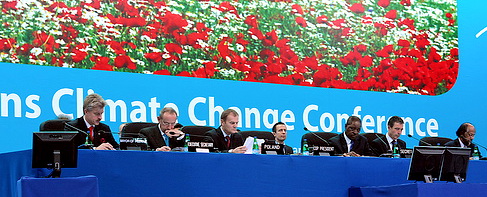Every few weeks or so, I take the time to read articles produced by The Pew Research Center, a non-partisan fact tank. Pew does not take sides in policy disputes, but they do provide a valuable information resource for political leaders, journalists, scholars and citizens. I believe that I come under that last category, citizen. The only requirement that Pew has relative to their findings is that their sources are cited accurately and in context.
Recently, they provided some fun statistics:
For example, among the public, one-in-four (25%) believe in astrology (including 23% of Christians); 24% believe in reincarnation, nearly three-in-ten (29%) say they have been in touch with the dead; almost one-in-five (18%) say they have seen or been in the presence of ghosts. If none of those statistics surprise you, then you clearly are not me.
Here was another great poll finding: 87% of scientists say that humans and other living things have evolved over time and that evolution is the result of natural processes such as natural selection, but only 32% of the public accepts this as true. (From the work of Jodie T. Allen and Richard Auxier, Pew Research Center)
Well, this next poll was even more interesting to me. As both a business person and a humanist, it has been difficult for me to hear large numbers of my friends and acquaintances literally “going off” about how ridiculous global warming is. They say things like, “Global warming and global cooling happen all the time; it’s just a natural course of events.” Others say, “Al Gore filled us with lies about global warming for his own financial gain.” Finally, I have heard over and over, “Well, we can’t do anything about it anyway, so why worry.”
Then there’s the opposite side where experts say things like, “If we stopped using all fossil fuels right now, the earth will continue to heat for another 60 years, and all of the devastating floods and fires that we’ve seen this year were the result of only a 1 degree increase in the world’s temperatures, and in 60 years we will heat up by 5 degrees.”
What did Pew find about the current global attitudes about climate change?
 Their international polling shows that publics around the world are concerned about climate change. In the recent spring 2010 Pew Global Attitudes survey, majorities in all 22 nations polled rate global climate change a serious problem, and majorities in ten countries say it is a very serious problem. There are some interesting differences among the countries included in the survey. Brazilians are the most concerned about this issue: 85% consider it a very serious problem. Worries are less intense, however, in the two countries that emit the most carbon dioxide — only 41% of Chinese and 37% of American respondents characterize climate change as a very serious challenge.
Their international polling shows that publics around the world are concerned about climate change. In the recent spring 2010 Pew Global Attitudes survey, majorities in all 22 nations polled rate global climate change a serious problem, and majorities in ten countries say it is a very serious problem. There are some interesting differences among the countries included in the survey. Brazilians are the most concerned about this issue: 85% consider it a very serious problem. Worries are less intense, however, in the two countries that emit the most carbon dioxide — only 41% of Chinese and 37% of American respondents characterize climate change as a very serious challenge.
Even though majorities around the globe express at least some concern about this issue, publics are divided on the question of whether individuals should pay more to address climate change. In 11 nations, a majority or plurality agree that people should pay higher prices to cope with this problem, while in 11 other nations a majority or plurality say people should not be asked to pay more.
These findings remind me of numerous other examples of confusion created by the short term winners and losers in what are serious economic discussions. There are 1.5 B Chinese, and over the next several years, many of them are going to want a car. Regardless of your own personal stand on this issue, that’s some serious potential pollution.






